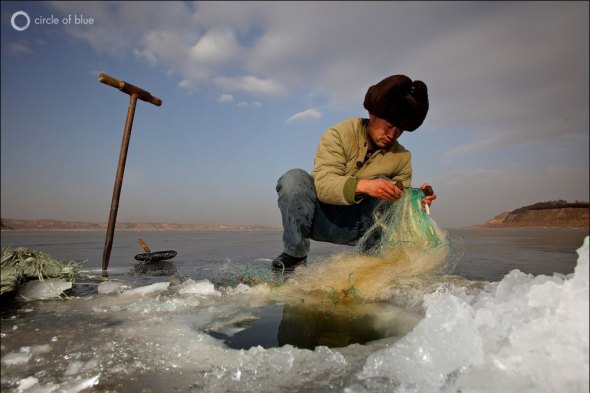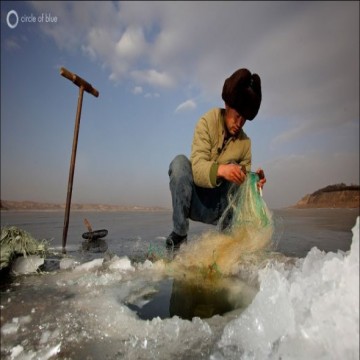Off the Deep End - Beijing's Water Demand Outpaces Supply Despite Conservation, Recycling and Imports
Nadya Ivanova
How China's capital got in over its head, and what the city is doing to get its water crisis under control.
BEIJING--Perennial drought, overuse and pollution have left Beijing struggling to meet the growing water demands of its soaring economy, which is expanding by more than 11 percent per year on average. Its drying rivers and lakes, along with falling water tables, are enduring water deficits that force the city to suck millions of cubic meters (billions of gallons) in emergency transfers from neighboring provinces -- which, in turn, depletes their water supplies -- thereby draining agricultural and economic opportunities.
In essence, Beijing is at the bull's-eye of a potentially ruinous collision between accelerating growth and scarce freshwater reserves that is unfolding in China's dry and resource-rich northern provinces. Beijing's municipal government, though, is acting with authority and some speed to avoid a water crisis. The city is relocating thirsty industries to the coast, regulating water prices and cutting back on irrigated farmland. Beijing also is setting nationally significant standards for retrofitting sewage treatment systems to recycle wastewater for use in flushing toilets, washing cars, greening urban parks, cooling thermal power plants and other gray-water applications.
Though water recycling in Beijing is a big help, it's not nearly enough. The city's water use -- currently around 3.6 billion cubic meters (950 trillion gallons) a year -- now outstrips the available local water resources by more than 1.3 billion cubic meters (340 trillion gallons). And this water gap will only grow larger, as is the growing population and rocketing economy, which are steadily depleting the city's rivers, lakes and underground aquifers, along with climate shifts that are disrupting patterns of rain and snowfall.

Faced with irrigation restrictions, many farmers in eastern Hebei Province look for other ways to make a living. Photo: © Aaron Jaffe/Circle of Blue
This winter, Beijing endured its 12th straight year of severe drought, and the winter dry spell was the worst in the last 60 years. Two-thirds of the city's water comes from groundwater and one-third from surface water, but average annual precipitation in the Beijing area has dropped 30 percent since the turn of the century.
Declining surface water supplies, along with growing population, are also forcing deeper drilling into Beijing's shallow aquifers, which have already dropped by more than 10 meters (33 feet) since 2000. Some 60 kilometers (37 miles) outside the city, villages have to sink wells more than 1,200 meters (3,900 feet) into the ground to get water.
To avert a looming crisis, Beijing is transporting water from outside the city, at the expense of neighboring provinces -- particularly Hebei Province, where farmers are being paid subsidies to cut back on irrigation. Or are they?
"What can we do? If you don't let us irrigate our crops, we have no other options [but to fish]," a farmer mutters, hungry and frustrated, declining to give his name before he hurries away from the Guanting Reservoir, exclusively reserved, according to unwritten rules, for local government officials.
The fisherman could get fined more than $US 1,200 (RMB 8,000) -- four times his annual salary -- for fishing for food for himself and his family. He, like many of his compatriots, says local authorities don't give them any of the subsidies that compensate for the losses.
He will soon return, with an empty sack, to his home in an impoverished village not far away, joining hundreds of farmers, dirt-poor and desperate, whose lands and lives are roiled by fierce water shortages, water pollution and lack of job opportunities.
Read more at Circle of Blue.
Readers: How can China's capital avert an ever-deepening water crisis? Share on Talkback!

